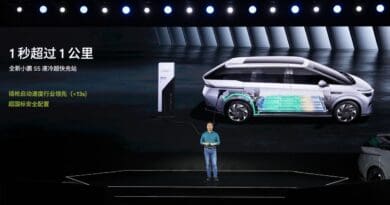Electric vehicle sales boom as new car market struggles again
Last month was the best ever for electric vehicle sales despite the new car market recording its worst September since 1998, according to the SMMT.
The latest industry figures from the Society of Motor Manufacturers and Traders revealed that last month was the best ever for new battery electric vehicle, with more than 32,000 new EVs hitting the roads. The September performance was just over 5,000 shy of the total number registered during the whole of 2019.
However, the UK new car market as a whole saw a huge decline, with a -34.4% fall on September 2020, when pandemic restrictions were significantly curtailing economic activity.
September is typically the second busiest month of the year for the industry, according to the SMMT, but with the ongoing shortage of semiconductors impacting vehicle availability, the 2021 performance was down some -44.7% on the pre-pandemic ten-year average.
Plug-in hybrid (PHEV) share also grew to 6.4%, meaning more than one in five new cars registered in September was zero-emission capable. Meanwhile, hybrid electric vehicles (HEVs) grew their overall market share from 8.0% in 2020 to 11.6%, with 24,961 registered in the month.
The Tesla Model 3 was once again the most purchased vehicle for the month, with 6,879 units being sold in September.
Mike Hawes, SMMT chief executive, said: “This is a desperately disappointing September and further evidence of the ongoing impact of the Covid pandemic on the sector. Despite strong demand for new vehicles over the summer, three successive months have been hit by stalled supply due to reduced semiconductor availability, especially from Asia. Nevertheless, manufacturers are taking every measure possible to maintain deliveries and customers can expect attractive offers on a range of new vehicles.
“Despite these challenges, the rocketing uptake of plug-in vehicles, especially battery electric cars, demonstrates the increasing demand for these new technologies. However, to meet our collective decarbonisation ambitions, we need to ensure all drivers can make the switch – not just those with private driveways – requiring a massive investment in public recharging infrastructure. Chargepoint roll-out must keep pace with the acceleration in plug-in vehicle registrations.”






